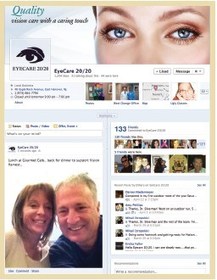What Does Social Media Participation Mean for Patients’ Privacy?
10/07/2014Digital to Pass 25% of Global Media Spend for First Time
10/07/2014What Does Social Media Participation Mean for Patients’ Privacy?
The doctor-patient relationship is confidential by nature. Although we encourage you to participate intelligently in social media, at times, this advice can complicate things. A single violation of the Health Insurance Portability and Accountability Act (HIPAA) may cost tens of thousands of dollars in fines, not to mention the criminal charges you could face. Is the use of social media worth it? The short answer is yes—as long as you do it right.
IF YOU WOULD NOT SAY IT IN YOUR WAITING ROOM, DO NOT SAY IT ONLINE
This is an extension of the “think before you post” rule. Before you post anything on a social media site, pause and read it out loud. Imagine you just said what you read in your waiting room in your normal speaking voice. If you feel comfortable with that, then what you have typed is probably fine to post on Facebook or Twitter. If you feel even the least bit uncomfortable with the notion of saying in a waiting room full of people what you are about to post however, do not post it.
DO NOT MIX PERSONAL AND PROFESSIONAL MESSAGES
If you have personal accounts on social media sites, do not use them for professional purposes. Do not “friend” your patients on Facebook: if you want to use Facebook professionally, create a page that people can like. A professional presence can include a personal touch without being overly personal. Pictures from your marathon last week work perfectly, but those from your date last night do not.
MAKE SURE YOUR STAFF UNDERSTANDS YOUR SOCIAL MEDIA POLICY
Although you cannot monitor everything your staff members do when they are not at work, you can outline a social media policy that extends to all of your employees. It does not have to ban social media. After all, odds are that at least one member of your office staff began personally posting Tweets or using Facebook long before your practice had a professional presence on these sites. You can, however, create a policy and ensure that your entire office understands it. At the very least, ban discussing patients online, no matter how vague the details.
DEVELOP A RELEASE FORM FOR PATIENTS’ TESTIMONIALS
For some subspecialties, patients’ photographs and testimonials can really enhance the credibility of a business. Develop a standard release form for these situations, and make sure patients understand exactly how and where their photographs or words will be used. Crop or disguise identifying details to ensure patients’ anonymity.
Source: modernaesthetics.com



